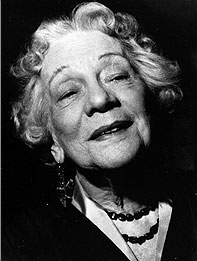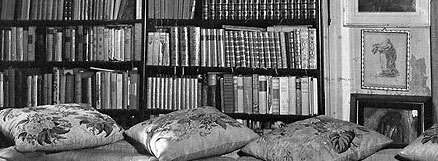

Tilla Durieux (née Ottilia Godefroy; 1880-1971) is among the major figures in
the acting world of Germany. She was a great star of the Berlin theatre of the
golden twenties, belonging to the frenetic world of the Weimar Republic. Her
period between 1903 and 1918 was marked by two key figures. Max Reinhardt
created the actress, and Paul Cassirer brought her into the centre of the most
advanced events of the fin de siecle. Her second period ended with Hitler’s
pogroms (1933). The Zagreb period (1934-1952) was a refuge, peace and respite
before new trials. In the foyer of the Croatian National Theatre (CNT) she met
Zlata Lubienski and from 1938 dwelled in Jurjevska Street, at number 27. In
1955 she returned to Berlin, dedicating herself to acting until the end of her
days.


Tilla Durieux was not a professional art collector. Rather, her life was
encompassed and framed by the collection. The beginnings of the collection were
put together by her first husband, Paul Cassirer. Hitler’s pogroms, Cassirer’s
suicide, her new marriage with the share owner Ludwig Katzenellenbogen, his
tragic death in a camp and Tilla’s emigration to Zagreb determine a ceiling for
the origins of the creation. The Collection inexorably contains and mirrors
Tilla's life. It speaks indirectly of the figures of the cultural and artistic
life of Berlin before 1933. This was the time of post-war Expressionism, of
Piscator’s political theatre, of Chagall’s realistic enchantment, the trenchant
condemnations of the Neue Sachlichkeit, of Bauhaus idealism and the rejection
of the masterpieces of Ernst Barlach. When she came to Zagreb, Tilla was able
in Jurjevska to recover something of that lost atmosphere of her Berlin flats.
A day for visiting the collection was set on Sunday afternoons. Here writers,
artists and conservators would drop in, with budding art historians and
painters of the Academy. At the same time, organisers of thematic exhibitions
would borrow objects for their major exhibitions. Some of the objects played an
authentic mute role in film co-productions. The Collection, with its
educational and spiritual characteristics, has placed a special and distinctive
stamp on the city of Zagreb.

In 1982, in the Parliament building, Mrs Erika Danhoff signed a deed of gift
donating part of the collection to the city of Zagreb. Her words were: "My
great friend and my mother in art T. D. loved your city. She loved Zagreb,
which was her city too for so many years, and which she was later permanently
attached to. So I am sure that she would have consented with great satisfaction
to be lastingly present in it in this way." On behalf of the Museum, a newly
founded Commission took over part of the collection, all told, nineteen works
of art.


Objects from
the Display of Zagreb City Museum
The Private
Life of Tilla Durieux
Artistic
Portraits of Tilla Durieux
The Theatre
Roles of Tilla Durieux
The Flight
from Germany, and Zagreb